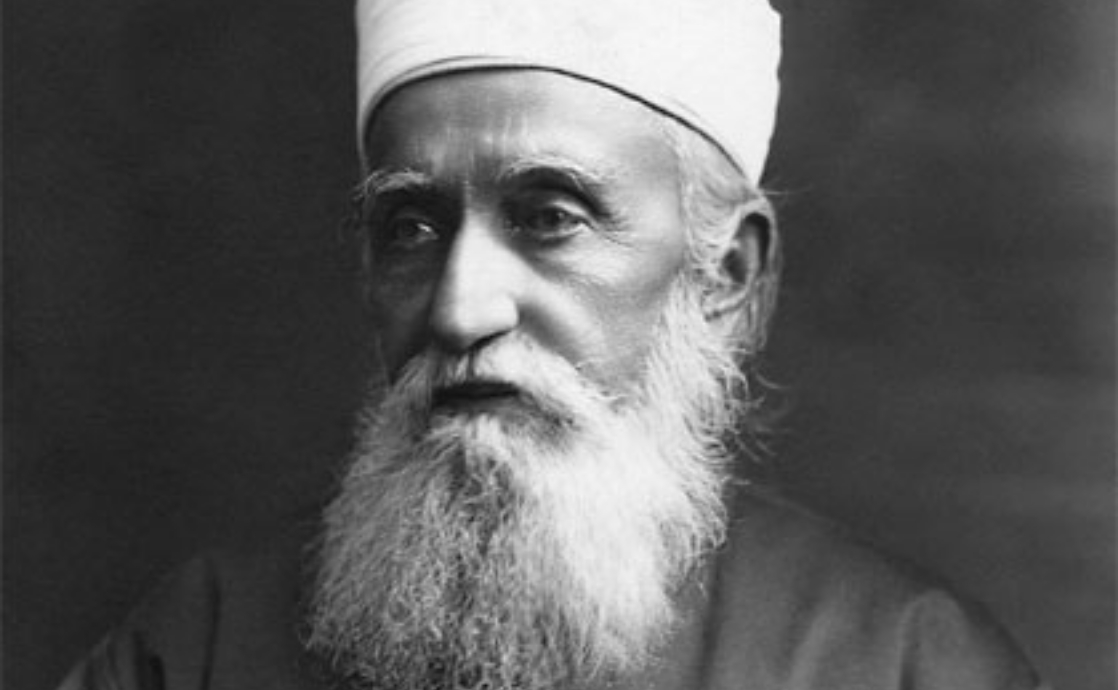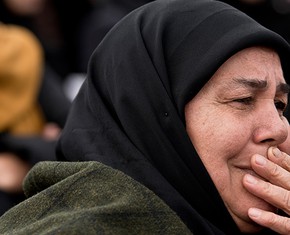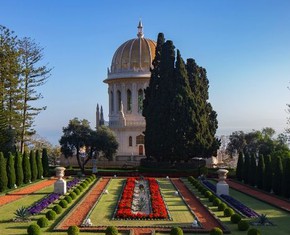The views expressed in our content reflect individual perspectives and do not represent the authoritative views of the Baha'i Faith.
My whole life has been radically and beautifully changed by the example of someone I never met – Abdu’l-Baha. Like all Baha’is do, I try to pattern my life after his, even though I’ll never get there.
I first encountered Abdu’l-Baha – metaphorically and spiritually, not literally – as a conflicted, confused adolescent. Raised as a Lutheran, I left the church at 12 and considered myself an agnostic and a spiritual seeker. Then, at a mid-1960s civil rights workshop, while trying to find a path toward justice in the world, I met a wonderful group of Indigenous Baha’is – a Navajo, a Hopi, and a member of the Morongo Band of Mission Indians – who led groups seeking equity and fairness in society. They selflessly gave of their time and energy to answer my many naïve and uneducated questions about the Baha’i teachings. Older than I by a decade or more, I saw them as the adults in the room, wise and perceptive.
RELATED: Abdu’l-Baha: Gone from Our Midst for a Hundred Years
Those young people – Franklin Kahn, Elizabeth Dahe, and Art Jess – didn’t just answer my questions, though. All three of them seemed quiet and reserved by nature, and none of them said much, unless and until I asked repeatedly. Instead, I could tell who they were by the way they lived their lives. They each humbly devoted themselves to the well-being of others, to bringing about justice and unity and a world civilization, to love and understanding and compassion. They lived Baha’u’llah’s injunction to “Let deeds, not words, be your adorning.”
I wanted some of that.
So, intensely curious, I pestered them endlessly, trying to unlock the secret of how they had acquired the spiritual attributes and traits that allowed them to develop such sterling characters. Calm, quiet, self-contained, and kind, I could see that they turned their beliefs into action. It took a while, perhaps because of the gap between their cultures and mine, but one by one, they told me that they were only trying to follow the example of Abdu’l-Baha.
“Who?” I asked.
Abdu’l-Baha – born in 1844, the eldest son and eventual successor of Baha’u’llah, who founded the Baha’i Faith – passed away in 1921, three decades before my birth. But to Baha’is, including those three wonderful Baha’is I first met as a teenager, his example of how to live a purely spiritual existence infused their lives with meaning, with purpose, and with joy.
Like a beacon of light, Abdu’l-Baha’s example continues to live today, just as potent and powerful – or even more so – than during his physical life.
The Baha’i teachings contain many descriptions of the life and teachings of Abdu’l-Baha, but this one, written for the United Nations in 1947 by Shoghi Effendi, the Guardian of the Baha’i Faith after Abdu’l-Baha’s passing, probably summarizes his role most succinctly:
The authorized Interpreter and Exemplar of Baha’u’llah’s teachings was His eldest son Abdu’l-Baha (Servant of Baha) who was appointed by his Father as the Center to whom all Baha’is should turn for instruction and guidance. Abdu’l-Baha ever since his childhood was the closest companion of his Father, and shared all His sorrows and sufferings. He remained a prisoner until 1908, when the old regime in Turkey was overthrown and all religious and political prisoners throughout the empire were liberated. After that he continued to make his home in Palestine but undertook extensive teaching tours in Egypt, Europe and America, being ceaselessly engaged in explaining and exemplifying the principles of his Father’s Faith and in inspiring and directing the activities of his friends and followers throughout the world.
At first I had no idea what all of this meant, or how it had come about. However, as I read and learned more about Abdu’l-Baha’s life, I came to a gradual realization – that his loving, peaceful, humanitarian work in the world, carried on every day of his life with diligence and devotion, would become my lodestone, the one place where I would try to aim my life’s compass.
I got to that point by seeking out the accounts of how Abdu’l-Baha lived, like this one from an early American Baha’I businessman named Roy Wilhelm, who wrote about what he saw during his 1907 visit to Abdu’l-Baha in the Holy Land:
Friday mornings at seven there is another picture. Near the tent in the garden one may see an assemblage of the abject poor – the lame, the halt and the blind – seldom less than a hundred. As Abdu’l-Baha passes among them He will be seen to give to each a small coin, and to add a word of sympathy or cheer; often an inquiry about those at home; frequently He sends a share to an absent one. It is a sorry procession as they file slowly away, but they all look forward to this weekly visit, and indeed it is said that this is the chief means of sustenance for some of them. Almost any morning, early He may be seen making the round of the city, calling upon the feeble and the sick; many dingy abodes are brightened by His presence.
Or this one, from John Ferraby’s book All Things Made New:
During World War I when a blockade threatened the lives of many civilians in Haifa, Abdu’l-Baha saved them from starvation. He personally organized extensive agricultural operations near Tiberias, thus securing a great supply of wheat … Food was stored in underground pits and elsewhere. This He distributed to the inhabitants, regardless of religion or nationality. The food was systematically rationed. Having started His preparations as early as 1912, He averted tragedy in the dark days of 1917 and 1918.
I also absorbed, from my study of Abdu’l-Baha’s life, the patterns of his days. During Abdu’l-Baha’s lifetime the Christian Commonwealth Magazine reported:
It is wonderful to see the venerable figure of the revered Baha’i leader passing through the narrow streets of this ancient town (Akka) where he lived for forty years as a political prisoner … From sunrise often till midnight he works, in spite of broken health, never sparing himself if there is a wrong to be righted or a suffering to be relieved.
RELATED: Ambassador to Humanity Episode One: The Early Years
Many first-hand accounts from people like Tuba Khanum, one of Abdu’l-Baha’s four daughters, describe his daily routine of rising very early, taking tea, then walking through the walled prison-city of Akka until late at night, ministering to those who need help, to the people who clamor for his advice, to the sick and the elderly. When asked by a Baha’i how he kept up such a relentless and demanding pace of service to others, he said “… in all those upon whom I look, I see only my Father’s Face.”
This pure, loving, altruistic pattern of life – a total devotion to the oneness of humanity, to doing everything possible to alleviate the suffering of our fellow human beings – made me want to be like Abdu’l-Baha.
















Comments
Sign in or create an account
Continue with Googleor